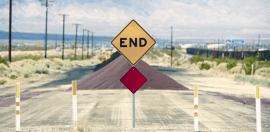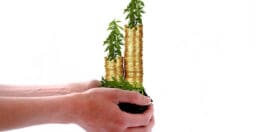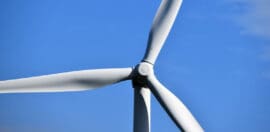Are we headed towards a new economy?

7 August 2019 at 8:39 am
Dr Amanda Cahill, the CEO of The Next Economy, talks to Wendy Williams about what we mean when we talk about a new economy and how it could work.
We are in the middle of a transition to a new economy.
The capitalist system is in crisis. Inequality is rising. Natural resources are becoming increasingly scarce. People everywhere are asking questions about the economy and power.
What happens next, no one knows.
For Dr Amanda Cahill, the CEO of The Next Economy and director and founder of the Centre for Social Change, this is the moment we will look back at in 30 years and realise we either got it right… or we missed the opportunity.
But, what is the opportunity?
In 2014, Tim Buckley, director of Energy Finance Studies, was speaking in North Queensland about how Australia’s biggest trading partners were moving away from thermal coal and how the country needed to plan for what happens after that.
He showed graph after graph of what was happening, and realising he was right, people began to question what they were going to do.
In response, Cahill was invited to speak about what local communities could do around community-led economic development.
She went there under the assumption that everyone would think she was a “greenie” and it wouldn’t matter what she said.
But the opposite happened.
People not only understood what she was saying, they asked radical questions about power and community.
Cahill has since spent five years working with mainly coal or gas affected communities or other small communities doing it tough, to help them see the looming changes as an economic opportunity.
The purpose of The Next Economy is to generate greater awareness of the range of economic tools and practices we can use to ensure the long-term wellbeing of both people and planet, as well as support communities across Australia to implement these approaches to strengthen and stimulate their local economies.
“To me the new economy is bringing the threads together,” Cahill says.
“We’ve got a choice at the moment around whether we double down on strengthening the power of big multinational companies or we use the opportunity that things are shifting and changing to build more decentralised, resilient local economies”.
What do we mean by the new economy?
The first point is that it is not necessarily new – which is why Cahill chooses to use the term “next economy” for her organisation.
It includes things like circular economy principles, food co-ops, and initiatives that move us closer to a zero emissions economy, including community-owned renewables and regenerative land use practices.
“It’s reviving some really old concepts and practices like the co-operative movement and the sharing economy (in a genuine sharing sense not like in an Uber sense),” Cahill explains.
“All of these things have actually been around for a really long time, but it’s thinking about how they can apply in the current context, when we’re dealing with so many different, big challenges.”
Whether it’s dealing with climate change, growing inequality or cracks in democracy, it is about getting more participation in the decision-making process, and asking questions about where power resides, who gets access to what resources and who decides.
“It’s kind of questions about what sort of democracy do we want? What sort of economy do we want?” Cahill says.
She uses the example of energy.
From a climate perspective, Australia could get to 100 per cent renewable energy by big private companies choosing to roll it out across the countryside.
This is already happening. But there is an increasing backlash against large scale renewable energy projects. Cahill says the social licence of renewable energy is starting to reduce quite rapidly as companies are building multiple projects without consulting communities.
The alternatives are to have a government-owned renewable energy system, as in Queensland, which sees energy as a human right and a public service, or to have community-owned renewable energy projects, which are smaller scale but keep the money and the workers in the local community.
“Those are the kinds of questions I think the new economy movement is dealing with. How do we address the challenges but also address issues around justice and inequality?” Cahill explains.
How would it work at scale?
Cahill says the issue of scale is always a big one.
The opportunity is to build economies that are more place-based and where a lot of the solutions are suited and adapted to a particular context, and then link them up.
“Instead of one thing then has to grow and get bigger, the growth is almost like nodes within a network. It’s more about how do we connect up things that are working in each place, to then create the systems that are going to enable those things to thrive in a broader ecosystem,” she says.
This is not without its challenges.
There are successful examples that have fallen over because they’re not connected to anyone else.
“They’re kind of doing it on their own. The systems that support aren’t around them, whether that’s training, whether that’s procurement and supplies,” Cahill explains.
But, she points to a model in Preston in the UK as a possible solution. The local city council has set up procurement agreements, supporting worker co-operatives to supply “anchor institutions” – such as hospitals, councils and universities – in order to keep profit localised, in a model becoming known as The Preston model.
“Those sorts of things are happening all over the world now, we’re trying to figure out how to make it resilient, so it’s not just a nice little fringe thing, it actually can put down roots in one place but is networked across places and across the world,” Cahill explains.
How likely is it that this is the future?
Cahill is positive, but says we’re at the point at which “it could take off or die”, based on whether or not the systems are there.
The good news is that all around the world, people are experimenting with economic practices that not only meet the needs of people, but also protect and regenerate natural systems.
“Even in Australia every community I go to, if you ask the question, it’s there, people might not see it though. It’s not very visible,” Cahill says.
“So I think these little mushrooms are popping up but they’re not necessarily visible or connected yet.”
She says the element that gives her hope is around the sophistication in leadership and community organising.
“There are people with a political consciousness and skills to actually support those things across the board. We have the internet now, people can connect quickly and organise quickly,” she says.
The third element is that governments – especially local governments – are having to confront some big issues and are turning to new economy ideas as the alternative.
“So a number of local governments for example now have to deal with their waste issues because of China not taking their waste, and they’re turning to circular economy principles and saying ‘how do we have a closed loop around not just our waste but actually looping back into producing things differently’,” Cahill says.
“These conversations are actually happening everywhere, but at the same time the message skews as the crisis hit, particularly around climate.”
There is the risk that we’ll double down on big high-tech solutions as government and companies stand to make money by capturing the solution.
Cahill says only time will tell which way we go.
“We’re in the middle of the mess,” she says.
“So it’s hard to say.”








Brilliant article